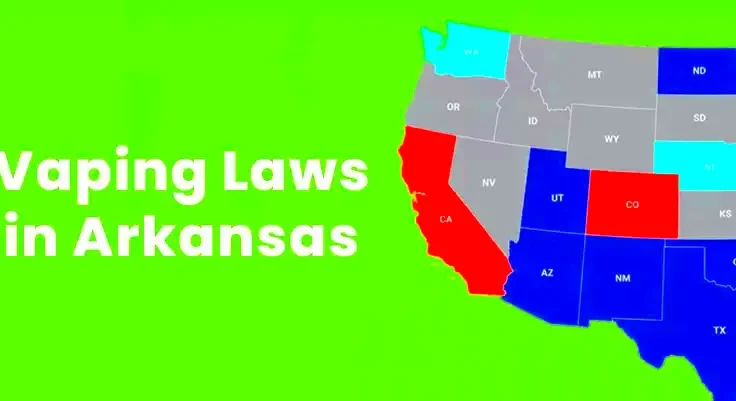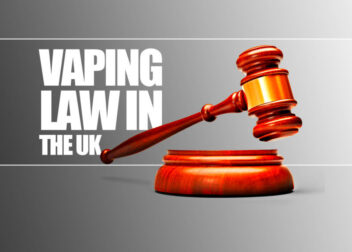Vape Sales Restrictions and Regulations in Arkansas
Vaping has gained popularity as an option to smoking but it comes with its own set of rules and regulations particularly in Arkansas. Having witnessed the evolution of these regulations over time I can assure you that grasping these guidelines is crucial for anyone engaged in the vape industry or even for consumers looking to stay well informed. The regulations in Arkansas aim to ensure the safety and responsible use of vaping products mirroring a nationwide trend to tackle concerns regarding youth access and health effects.
Overview of Arkansas Vape Regulations
In Arkansas the sale of vapes is regulated by a thorough framework of rules designed to safeguard public health and ensure the safety of consumers. These rules address various aspects including the eligibility to sell vape products and the guidelines for their promotion. Here’s an overview of the key focus areas.
- Licensing Requirements: Retailers must obtain a license to sell vape products. This ensures that only authorized sellers can distribute these items.
- Health Warnings: Products must include health warnings to inform consumers of potential risks associated with vaping.
- Advertising Restrictions: There are strict rules on how vape products can be advertised, particularly to prevent targeting minors.
- Product Standards: Vape products must meet specific safety and quality standards before they can be sold.
The rules regarding vape products in Arkansas are constantly changing, so it’s crucial to keep yourself informed about any updates that could impact their sale or usage.
Age Restrictions for Purchasing Vapes
A key component of the vape regulations in Arkansas is the age limit. To buy vape products, people need to be 21 years or older. This rule aims to stop minors from getting their hands on vaping products showing a commitment to safeguarding young people from the potential risks linked to nicotine and other substances present in vape liquids.
As a parent I totally get why people worry about kids getting hold of these products. It’s great to see Arkansas taking a strong stand on this matter. Stores have to be super careful when checking IDs and if they mess up there could be serious consequences. This strategy not helps limit access but also encourages responsible selling behavior.
If you’re planning to sell or purchase vape products in Arkansas it’s essential to be aware of and comply with the age restrictions. This goes beyond simply obeying the law; it’s about playing your part in protecting public health and promoting responsible use of these items.
Limits on Vape Product Flavors and Ingredients
The wide range of flavors in products can be captivating yet a bit too much to handle. In Arkansas there are regulations in place that restrict the flavors and ingredients that can be included in vape products. These regulations aim to diminish the attraction of vaping among youth and ensure that the ingredients are safe for consumers.
Here’s a breakdown of the key limitations:
- Flavor Restrictions: In Arkansas, certain flavors, especially those that might attract minors, are restricted. For example, flavors like cotton candy or bubblegum may be banned to prevent young people from becoming interested in vaping.
- Ingredient Regulations: Vapes must not contain harmful substances like diacetyl, which has been linked to respiratory issues. The state requires manufacturers to ensure that their products do not have ingredients that could pose health risks.
Having seen the impact of these regulations up close I can assure you that their goal is to find a middle ground between giving consumers freedom and safeguarding public health. Its a matter but these guidelines represent progress in making vape products more secure and less appealing to the younger audience.
Packaging and Labeling Requirements for Vapes
In Arkansas the way vape products are packaged and labeled goes beyond looks. It serves an important purpose in keeping consumers safe and being transparent. These rules are designed to make sure that buyers have information about what they are buying and any potential risks associated with it.
Here’s what you need to know:
- Warning Labels: All vape products must feature clear warning labels about the risks of nicotine and other chemicals. These warnings are designed to inform users about the potential health impacts of vaping.
- Child-Resistant Packaging: To prevent accidental ingestion by children, vape products must come in child-resistant packaging. This is an important safety measure that helps to minimize risks in households with young kids.
- Ingredient Disclosure: Labels must list all ingredients in the vape liquid. This transparency allows consumers to make informed decisions about what they are using.
Observing the shifts in packaging regulations throughout the years it becomes evident that the goal behind these changes is to improve safety and equip consumers with essential information. This evolution showcases an increasing recognition of the significance, of accurate labeling and mindful consumption.
Taxes and Fees on Vape Products
The taxation and charges imposed on vaping products in Arkansas aim to oversee the sector and raise funds for health programs. These monetary factors are crucial within the framework of vape regulations and can impact retailers and consumers alike.
Here’s a breakdown of the way taxes and charges operate.
- Excise Taxes: Arkansas imposes an excise tax on vape products, which is typically calculated based on the volume of vape liquid or the quantity of nicotine. This tax helps to regulate the market and discourage excessive use.
- Sales Tax: In addition to excise taxes, vape products are subject to the state’s sales tax. This applies to the purchase of vape devices and liquids, adding to the overall cost for consumers.
- Licensing Fees: Retailers must pay licensing fees to sell vape products legally. These fees contribute to the regulation and oversight of the industry, ensuring that only compliant businesses operate in the market.
In my opinion these taxes and fees serve as a means to strike a balance between public health considerations and economic aspects. Although they may raise the price of vaping products they also contribute to regulatory efforts designed to safeguard consumers and address the societal impact of vaping.
Enforcement and Penalties for Non-Compliance
It is essential to uphold vape regulations to safeguard public health and safety in Arkansas the enforcement of these rules entails a mix of inspections, penalties and corrective actions. Having witnessed the progression of these enforcement methods firsthand I can attest to their importance in emphasizing the seriousness of adhering to the law.
Here’s how enforcement and penalties work:
- Inspections: Regulatory bodies conduct regular inspections of vape shops and retailers to ensure compliance with state laws. These inspections cover various aspects, including licensing, product safety, and adherence to age restrictions.
- Fines: Businesses found violating vape regulations can face hefty fines. These fines are intended to act as a deterrent and encourage adherence to the laws. For example, a retailer selling to underage customers can incur substantial penalties.
- License Revocation: In severe cases of non-compliance, a retailer’s license to sell vape products may be revoked. This is a serious consequence that can significantly impact the business.
- Legal Actions: Repeated or severe violations may lead to legal actions against the business or individual. This can involve court proceedings and additional penalties.
The measures, though strict are essential to uphold compliance with regulations and safeguard public health. Arkansas’s commitment to these matters is evident and the enforcement strategies aim to ensure a vaping setting.
Recent Changes and Updates in Vape Laws
Vaping regulations are not set in stone they change with new findings and shifts in public health priorities. Arkansas has witnessed several updates to its vaping rules in recent times similar to many other states. As someone who keeps a watchful eye on these changes I’ve seen how they mirror wider trends and issues.
Here’s a look at some recent updates:
- Flavor Bans: Recent legislation has introduced stricter bans on certain vape flavors, particularly those deemed appealing to minors. This change aims to reduce the attractiveness of vaping to younger audiences.
- Increased Taxes: There have been increases in excise taxes on vape products. This move is intended to regulate usage and generate revenue for health programs.
- Enhanced Packaging Requirements: New rules have been implemented to improve packaging, making it more informative and child-resistant. This change reflects a growing emphasis on consumer safety.
- Advertising Restrictions: There are tighter restrictions on how vape products can be advertised, focusing on preventing misleading claims and targeting of minors.
These changes show that Arkansas is dedicated to modifying its regulations to tackle new issues and developments related to vaping. Keeping up with these updates is essential for consumers and companies involved in the vaping sector.
FAQ
Q: What is the minimum age to purchase vape products in Arkansas?
In Arkansas, the legal age to buy vape products is 21. This rule is in place to restrict access to vaping items for those who are not yet of age.
Q: Are there any restrictions on vape product flavors in Arkansas?
Yes, Arkansas imposes limitations on specific vape flavors that are deemed appealing to minors. The aim is to decrease the allure of vaping among the youth population.
Q: What are the penalties for violating vape regulations?
Non compliance can lead to penalties such as fines, license suspension and potential legal proceedings. Retailers who breach these regulations might encounter significant repercussions.
Q: How are vape products taxed in Arkansas?
In Arkansas vape products are taxed through excise duties that consider the amount of vape liquid or nicotine present along with standard sales taxes. Retailers are also required to cover licensing costs.
Q: What recent changes have been made to vape laws in Arkansas?
The latest changes involve more stringent flavor prohibitions, higher taxes, improved packaging standards and stricter rules on advertising.
Conclusion
Grasping the vape regulations in Arkansas goes beyond adhering to the law; it’s about making choices that impact your health and the well being of the community. These rules, ranging from flavor and ingredient restrictions to packaging requirements and market shaping taxes, are put in place to ensure safety and safeguard vulnerable populations, particularly the youth. The evolution of vape laws shows a dedication to finding a balance between individual freedom and public health. Staying up to date and following these regulations not helps you avoid penalties but also contributes to a vaping environment. Whether you’re a business owner or a consumer understanding these regulations is essential for navigating the vape market in Arkansas, in a responsible manner.


